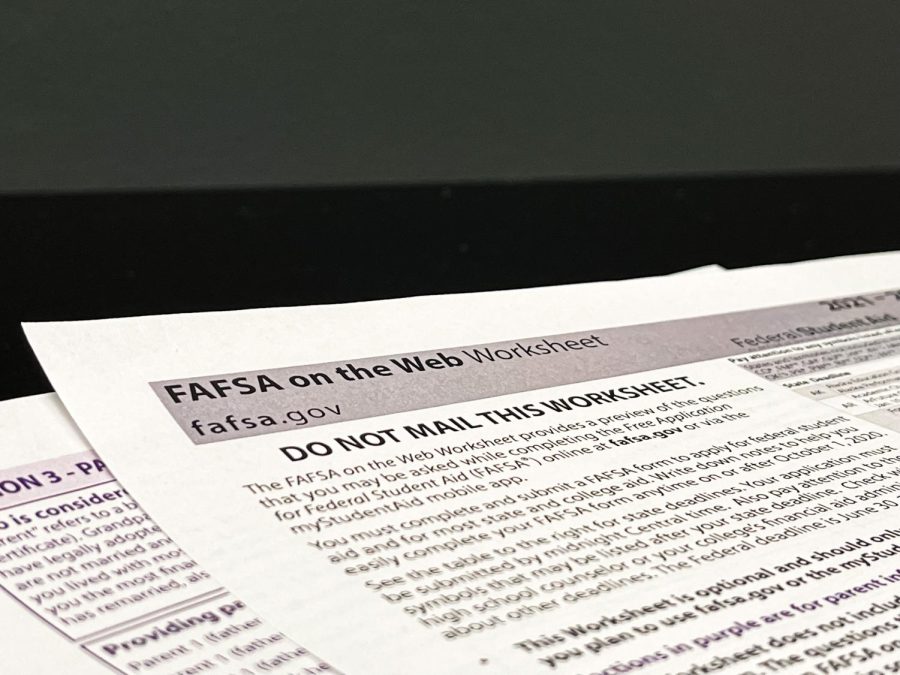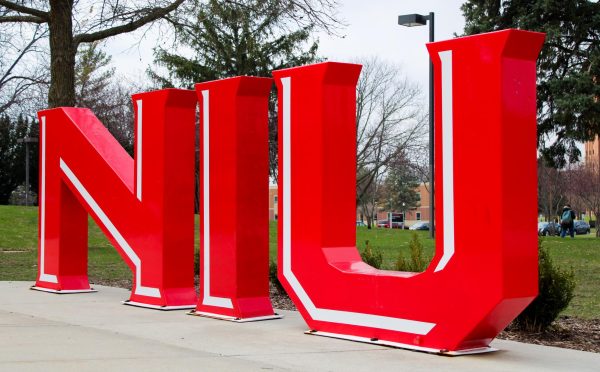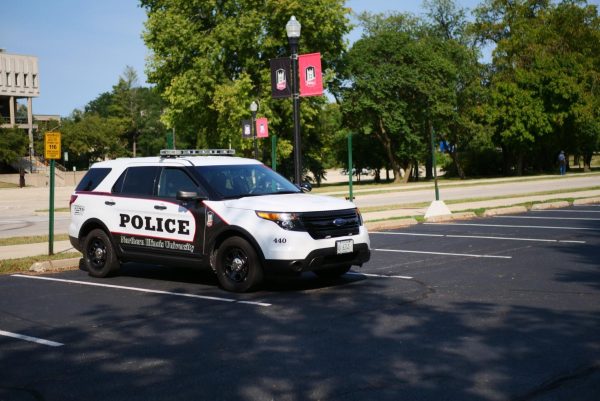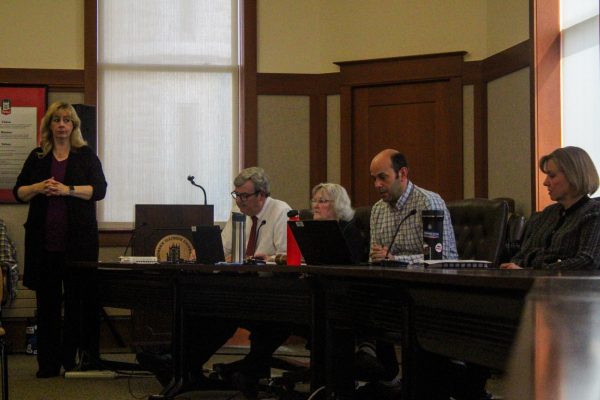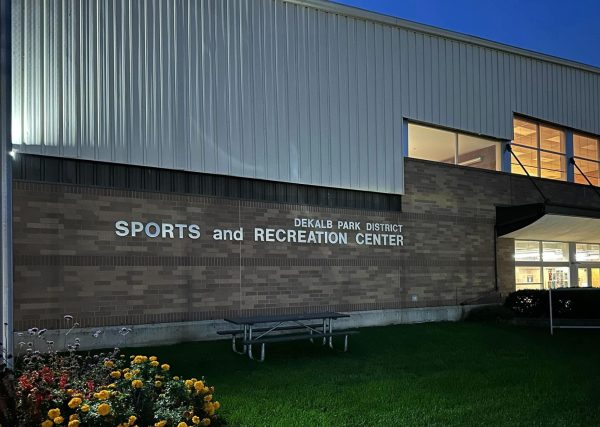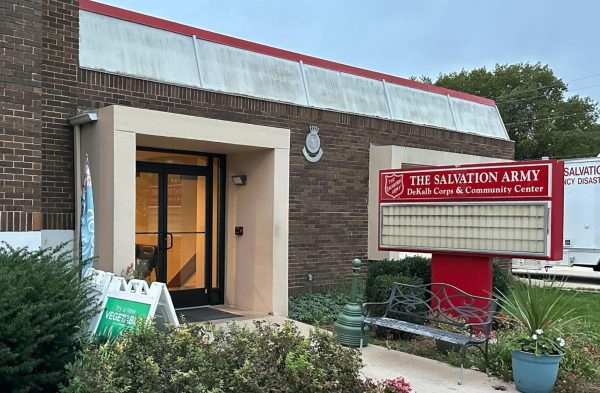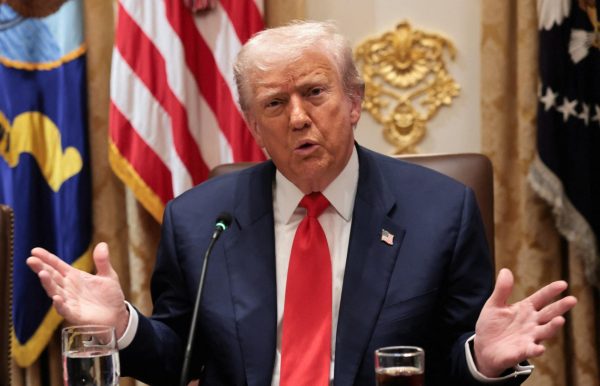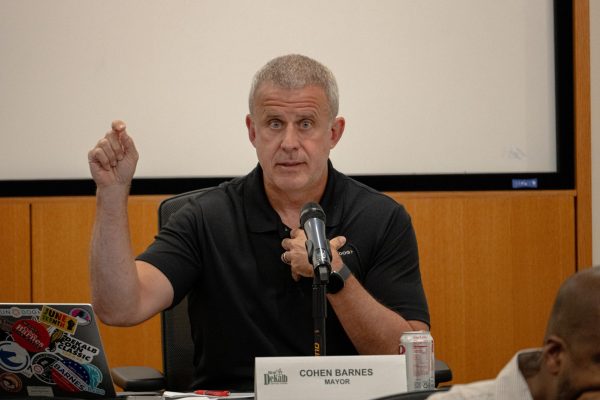NIU fights to double Pell Grant to increase financial aid for students
NIU and other higher education institutions contact Congress to double Pell Grant funds.
Two FAFSA documents lay on a table. Students are expected to file for FAFSA in order to receive financial aid.
What to Know
- There is a national effort to double the aid Pell Grant recipients receive annually.
- The program would continue to be need-based, so there would not be a change in qualifiable students.
- The doubled Pell Grants would be funded by the federal government.
DeKALB — In the lead-up to the Pell Grant’s 50th anniversary, members of SGA are working with NIU’s federal relations on a national effort to double the Pell Grant to allow for more access to higher education.
The Double Pell Alliance, a group of higher education associations, organizations and advocacy groups, lead DoublePell. The alliance wants to double the Pell Grant by the program’s 50th anniversary in June 2022.
The maximum amount a student can currently receive from the grant is $6,495. Doubling the Pell Grant would allow students up to $13,000 in aid, according to DoublePell.
“The Pell Grant is a proven program that has been the foundation of federal student aid for decades, opening the doors of college and opportunity to low- and moderate-income students,” according to the DoublePell Campaign.
Doubling the Pell Grant would add money to the existing program. So, students who are already eligible will still be eligible. The grant would continue to be need-based.
The national effort
33.6% of undergraduate students were Pell Grant recipients in the 2019-2020 school year, according to the National Center for Education Statistics.
Every year NIU receives about $25 million in Pell Grant support, said Anna Quider, assistant vice president for federal relations.
“Doubling the Pell would essentially cover your whole tuition for the year,” said Dallas Douglass, SGA Speaker of the Senate. “That’s the same thing as free college, except you’re getting more people into four-year institutions, which we see is a good thing.”
Douglass contacted several universities in California, along with partnering with SGA President Devlin Collins and NIU President Lisa Freeman.
Douglass said the focus is on doubling the Pell Grant as opposed to other grants because the Pell Grant is a direct deposit rather than a tuition waiver or a loan.
“I think investing in students in this way and, severely lightening the load that the financial burdens that people carry in their early 20s and late teens, it’s incredibly important,” Douglass said.
Types of funds
“The way that it works is the federal government has to pass a budget every single year,” Quider said. “So every year, the university weighs in with our congressional delegation about what our funding priorities are, called appropriations, what our appropriations priorities are for that upcoming fiscal year.”
The Pell Grant is funded mainly through mandatory spending, but discretionary spending is also used.
Eligible students
“Federal Pell Grants usually are awarded only to undergraduate students who display exceptional financial need,” according to FSA.
Quider said about 45% of NIU students are Pell Grant recipients.
The amount of money a student can receive will depend on expected family income, cost of attendance at school, status as a full-time or part-time student and plans to attend school for the full academic year or less.
The doubled Pell Grant would still be accessible to students in private and public universities, along with community colleges, Quider said.
Current actions
Quider is working with Freeman in advocating for the doubling of Pell Grants. Freeman has collaborated with presidents and chancellors from other public universities in Illinois. Together, they have sent several letters to the Illinois congressional delegation.
Freeman also met with Sen. Dick Durbin (D-Ill) and other presidents from Illinois universities to discuss doubling the Pell Grant.
“Durbin spoke in support of increasing the maximum Pell Grant and limiting the increase to students at public and non-profit universities—excluding for-profit colleges,” according to a Nov. 2, 2021 news release.
Quider and Douglass encourage students and staff to take action on the DoublePell website.
“Right on that website, there’s a way to send a letter to members of Congress or to send social media posts to members of Congress to encourage them to support doubling the Pell,” Quider said.


